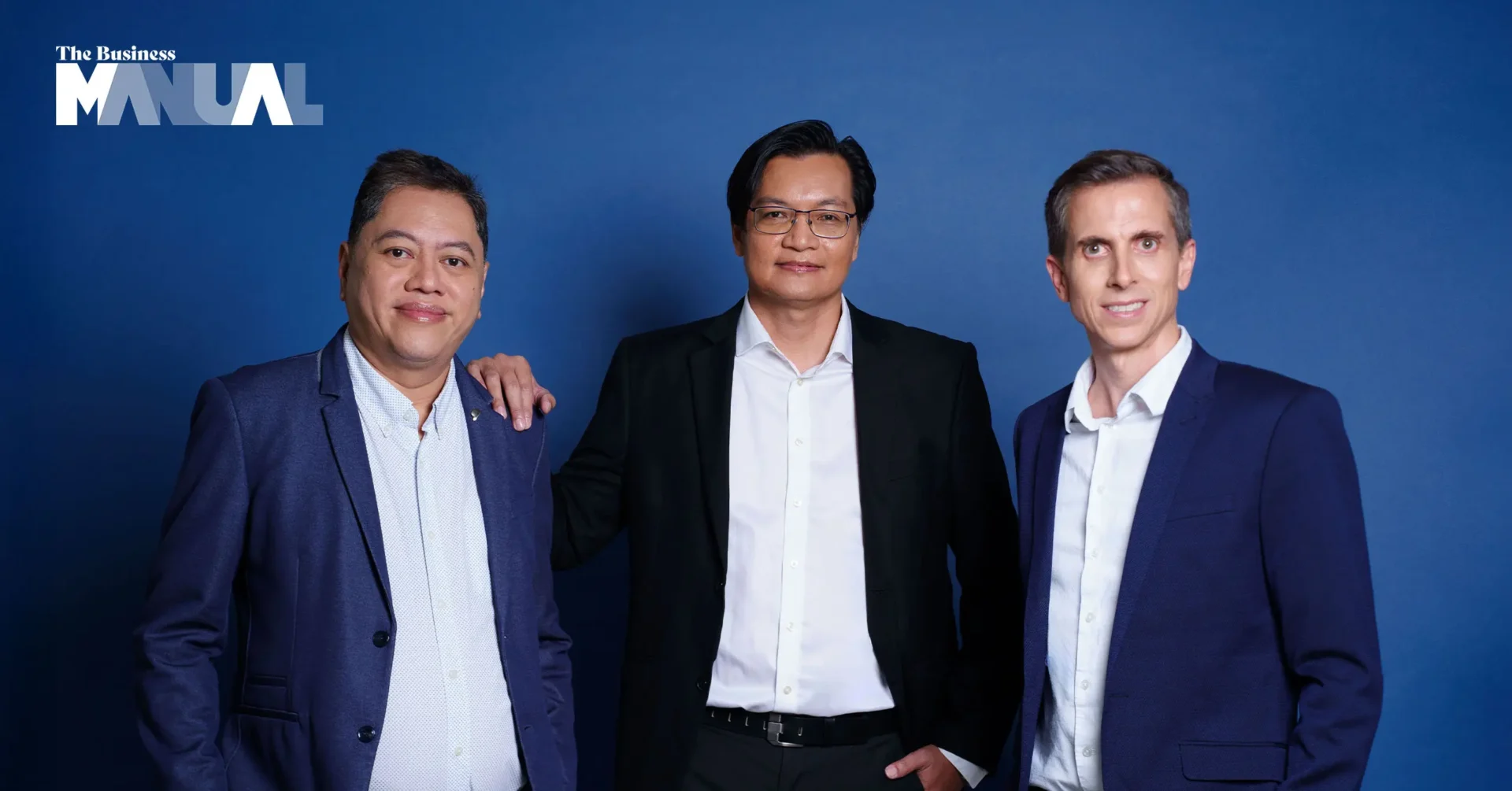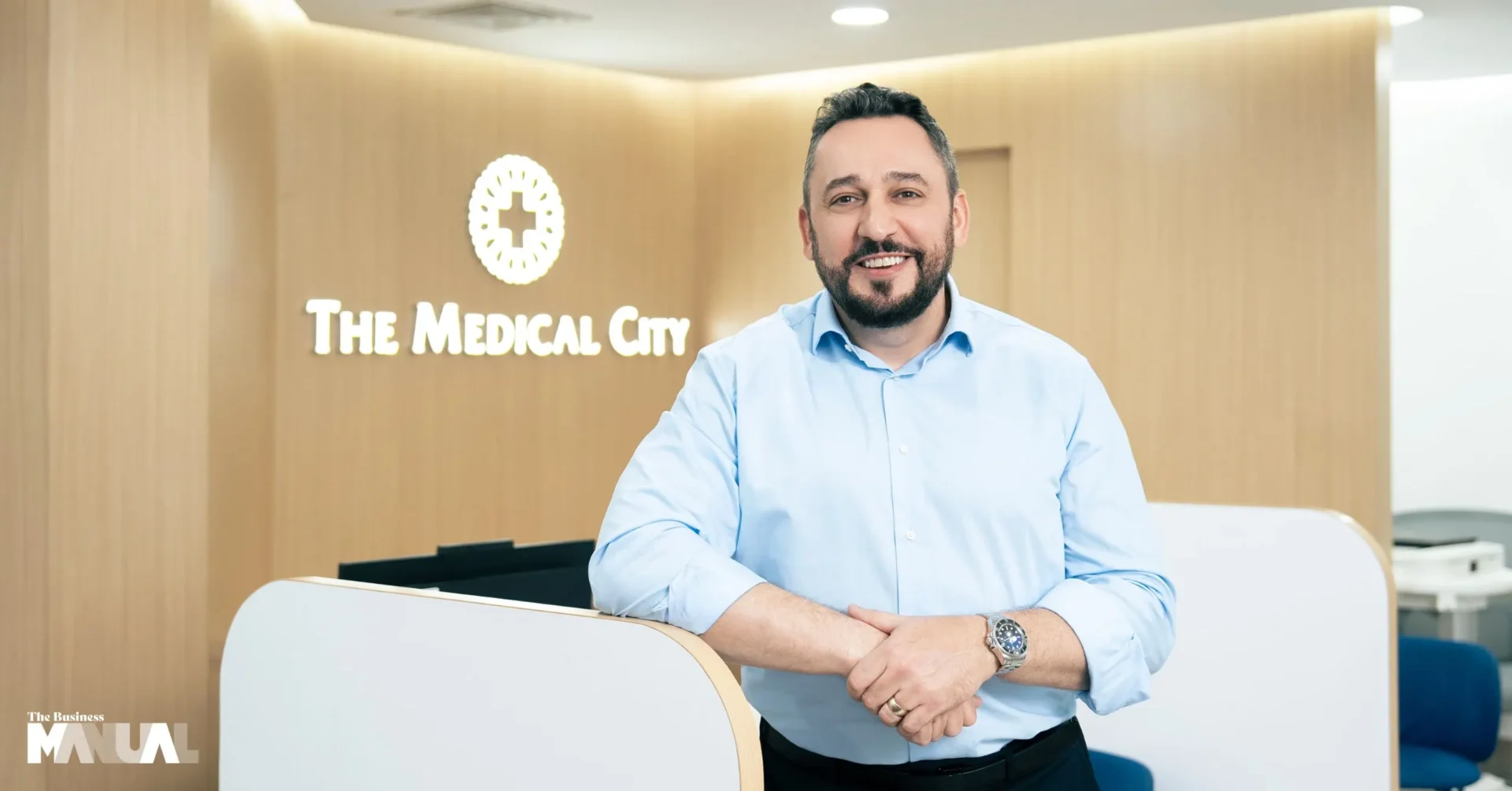The Art of Hotel Management: Why Experience Is King at The Henry Hotel
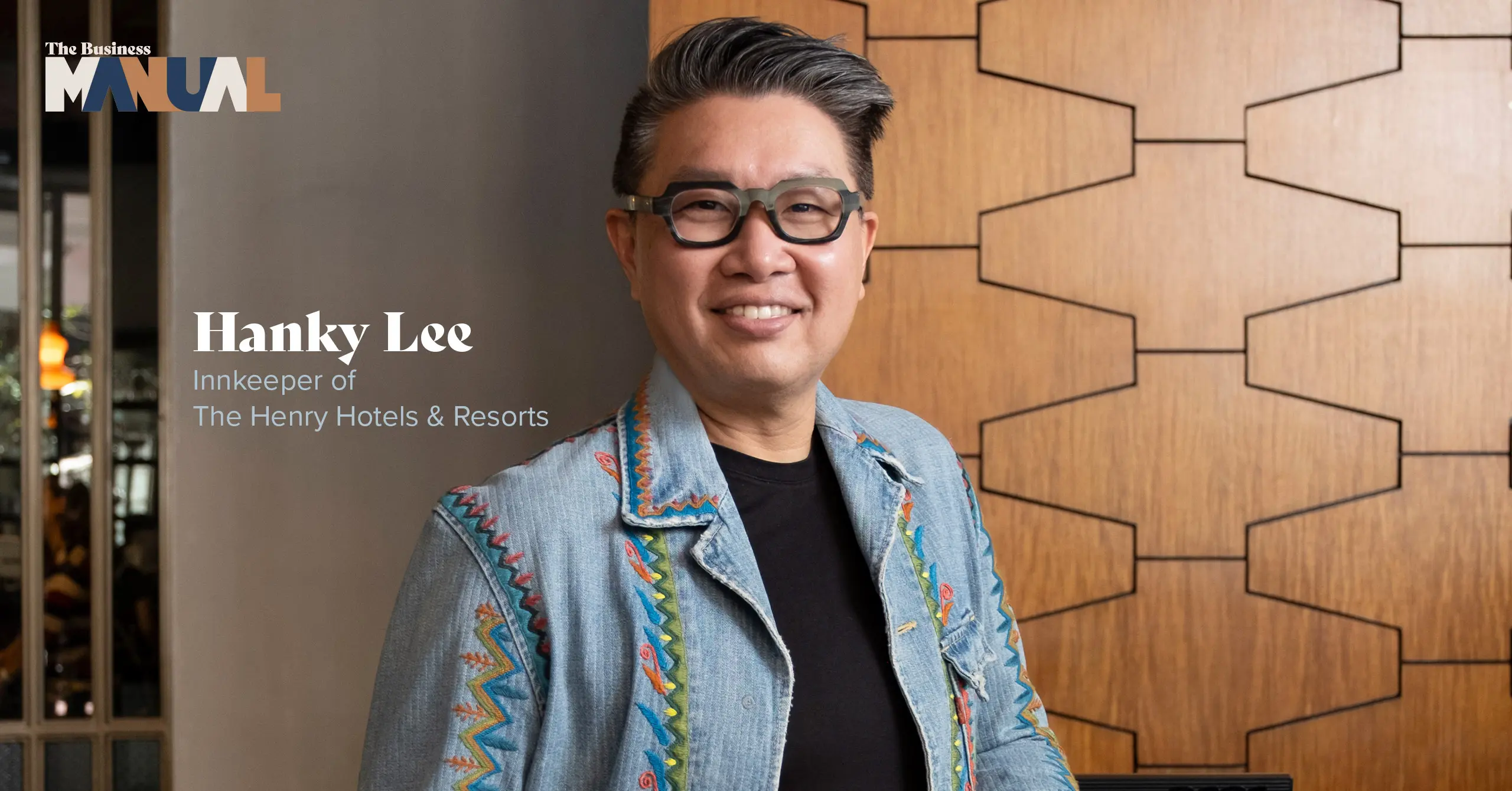
How Hanky Lee, Innkeeper of The Henry Hotels and Resorts turned celebrating the Philippines into a winning business model
Rising in destinations around the Philippines is a different kind of hotel–boutique hotels and resorts with a sense of history and an intimate local touch. The Henry Hotels and Resorts group, founded by Hanky Lee, leads the Philippine tourism boom not with a fastfood-esque chain of indistinguishable hotels. Instead, each Henry Hotel is deeply rooted in where it is situated–in old Manila, the beaches of Siargao, or the sugar plantations of Negros–and intimately linked with local communities.
The Business Manual spoke to Hanky Lee, the innkeeper behind the boutique Henry Hotels chain about this unique business model for hotels and resorts in the Philippines. In our exclusive interview, Hanky shares invaluable lessons from his entrepreneurial journey—lessons rooted in vision and purpose–which have propelled the hotel chain to grow from 2 to 12 hotels in just four years.
Just as The Henry Hotels has won awards for its uniqueness, Hanky Lee also approaches the industry in a different way. For Hanky, the hotel business isn’t about the number of rooms you can offer, or luxury at the lowest cost. It is about something far more rare and premium–it’s about building experiences.
For entrepreneurs of any industry, Hanky Lee’s story offers practical insights for leveraging the competitive edge of the Filipino and building something meaningful and enduring.
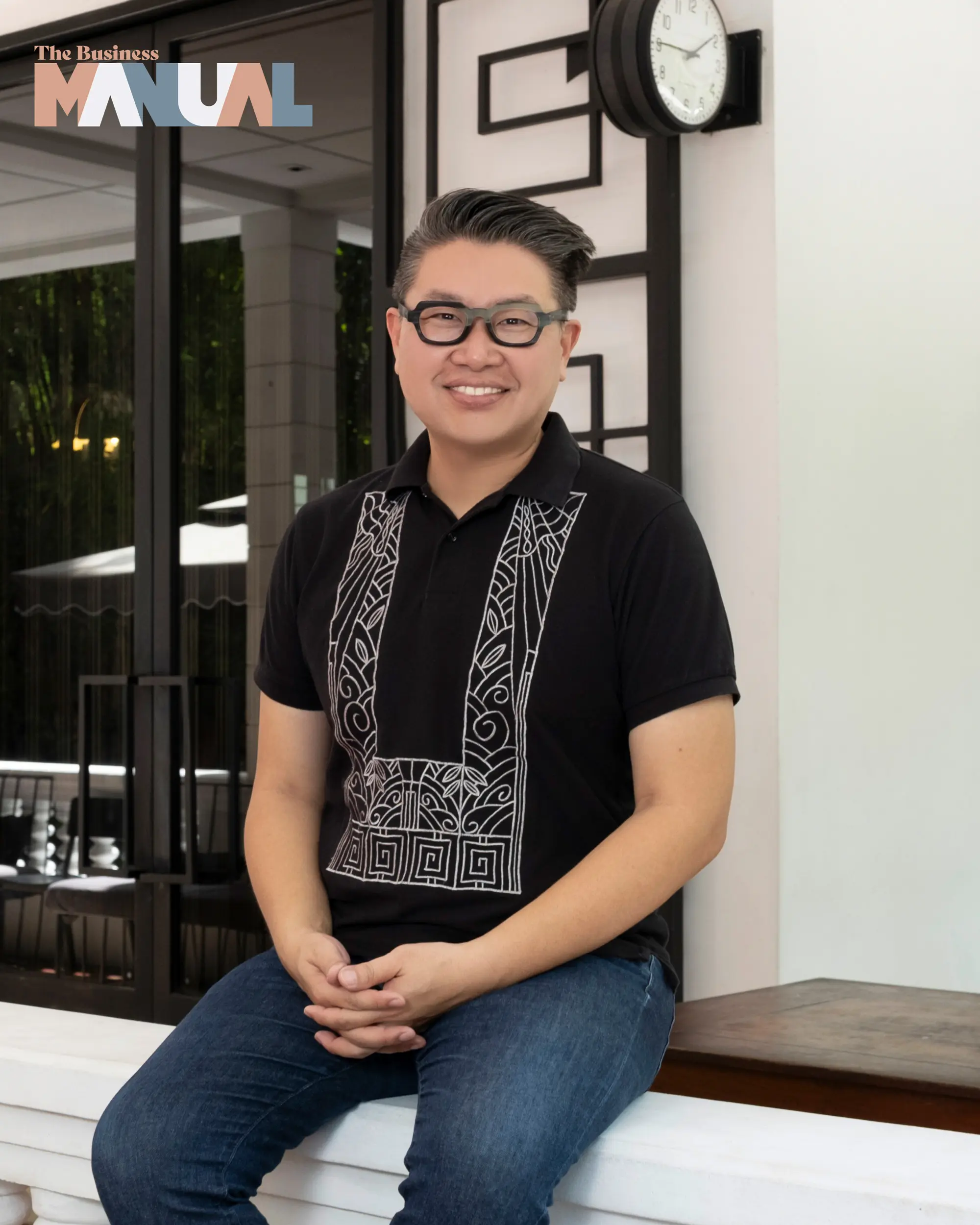
1. Spot the Gap
Prior to becoming the innkeeper at The Henry Hotels–a title that is a statement about the hotel chain’s emphasis on character–Hanky Lee was already a successful entrepreneur. But after the sale of the company he co-founded, Yellow Cab Pizza Co., he actively sought what would be the next chapter in his journey.
It didn’t take long for the entrepreneur to find it. Having spent years traveling across the Philippines as the business development lead for Yellow Cab, Hanky had firsthand exposure to the country’s tourism landscape. Through his stays at hotels around the Philippines, he became aware of the enormous possibilities–and the shortcomings of local hotels.
“I was fortunate enough to travel outside the country. And now traveling inside the country, wow, I saw there’s so much opportunity,” Hanky recounts. “And that’s why I thought of The Henry Hotels because that was the gap: the lack of quality accommodation that spoke about the place.”

By living the problem himself, Hanky identified a market gap: uniquely local, character-rich accommodations that honored the soul of each destination. The lesson is clear: entrepreneurs must learn to immerse themselves in the market and observe unmet needs organically.
2. ‘Branding is a Superpower’
Beginning with a property in Cebu, Hanky Lee established The Henry Hotel. And immediately, branding was one of his top priorities.
Why the name Henry?
“So we chose Henry because Henry actually is in French, Henri. It’s in Scandinavian, Henrik. It’s in Spanish, Enrique,” Hanky says, further explaining. “Since we are a hotel and we are going to welcome people from all over, maybe we can use Henry.”
The well-traveled name was an invitation to travelers from all over the world, but it was also a persona for everyone who worked at the hotel.
“Henry can also be a king, actually,” Hanky continues. “Henry is a persona that all of us, even me, have to adopt. So we are all gracious hosts.”
Hanky believes branding is more than logos or catchy names—it’s the emotional and cultural positioning of your business.
This focus on branding was something Hanky Lee learned when he created Yellow Cab Pizza.
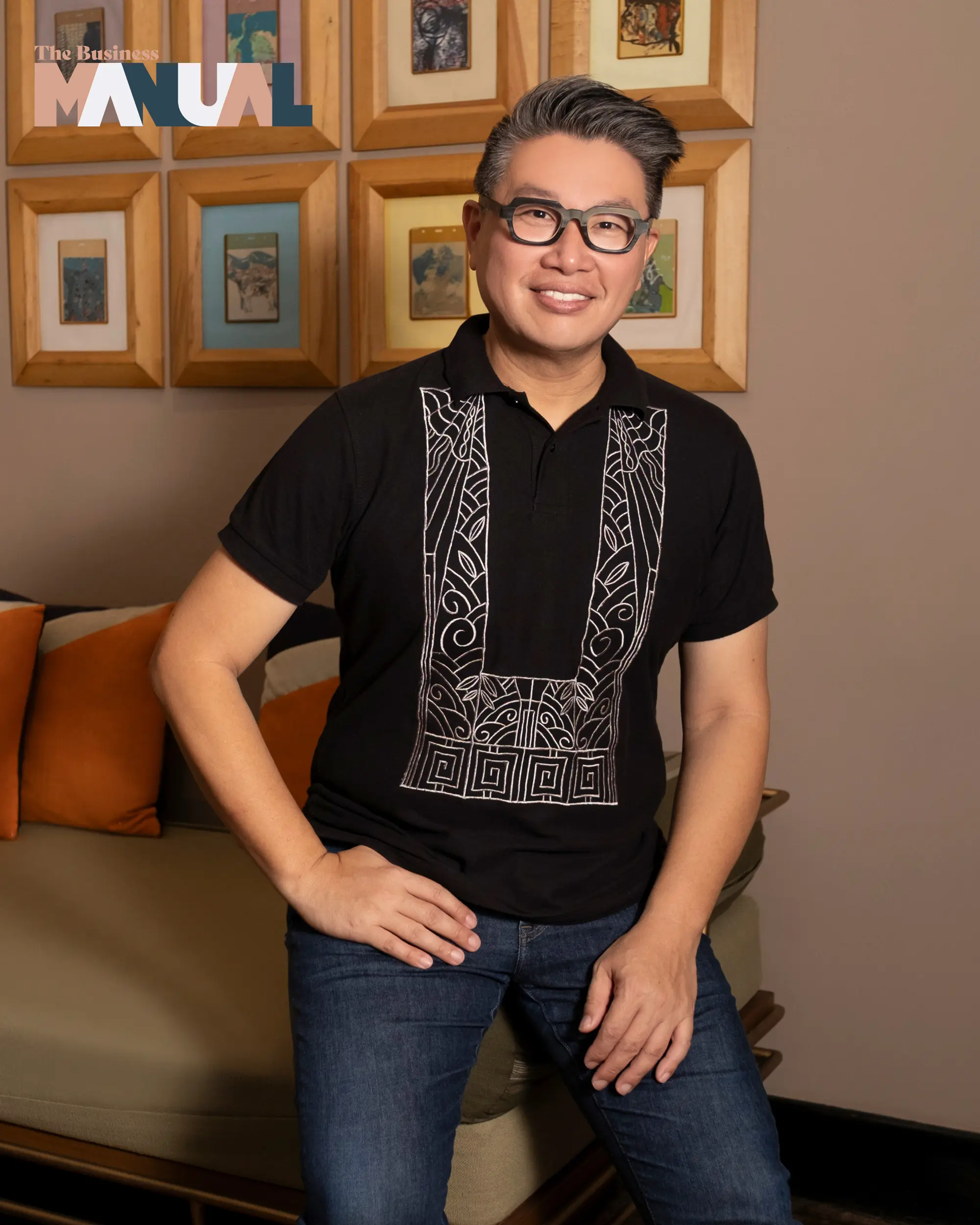
“Branding is a superpower,” Hanky says. This superpower was on full display when the 100% Filipino brand was consistently mistaken as a New York franchise.
“Yellow Cab is 100% Filipino. And I’m not ashamed to say that, right? That we were able to create a brand that was actually reversing [trends].” he says.
Instead of an American brand expanding to the Philippines, Yellow Cab–a pizza brand founded in the Philippines–expanded to the world. In fact, the brand was so strong that it found its way to 10 countries (during Hanky’s time managing the brand), to Guam, and even to California.
That same branding genius extended to The Henry Hotels. With the name “Henry” and the concept of “a chain like no other,” he crafted a brand rooted in authenticity and storytelling. For entrepreneurs, brand must resonate not just visually, but emotionally with your audience.
3. Define Your Brand
With the first and second The Henry hotels in Cebu and Manila, Hanky Lee began defining the brand pillars of The Henry.
“The Henry Hotels is basically what we call a chain that is like no other.. And how is it like no other? It’s because of what we call our three brand pillars.”
Unafraid to share The Henry Hotels’ “secret sauce,” Hanky Lee believes that the lessons he has learned should be shared for the benefit of the whole industry. It’s all about the Henry Hotels’ three brand pillars: sense of place, leveraging the Filipino, and celebrating the Philippines.
Brand Pillar #1: Sense of Place
“The first [brand pillar] is sense of place,” Hanky says. Difficult to quantify, it is this sense of place that surrounds us during our interview and permeates the whole hotel. More than just being The Henry Hotel Manila, it is also a meticulously restored colonial home. More than a colonial home, it speaks of another time and place, with stories of history and culture in every room.
Hanky continues, “Think of this: we are in Manila now… So this is like 1949. Old houses done right after the war. We cannot replicate this in, say, Bacolod because the sense of place of Bacolod is different. It’s about sugarcane, it’s about food, it’s very different.”
For Hanky Lee, there is no one-size-fits-all formula for his hotels. Every The Henry hotel and resort is rooted in its locale, its people, and their distinct culture.
In short, every Henry hotel “captures the aesthetic, the time, but also the essence of the place,” Hanky says.
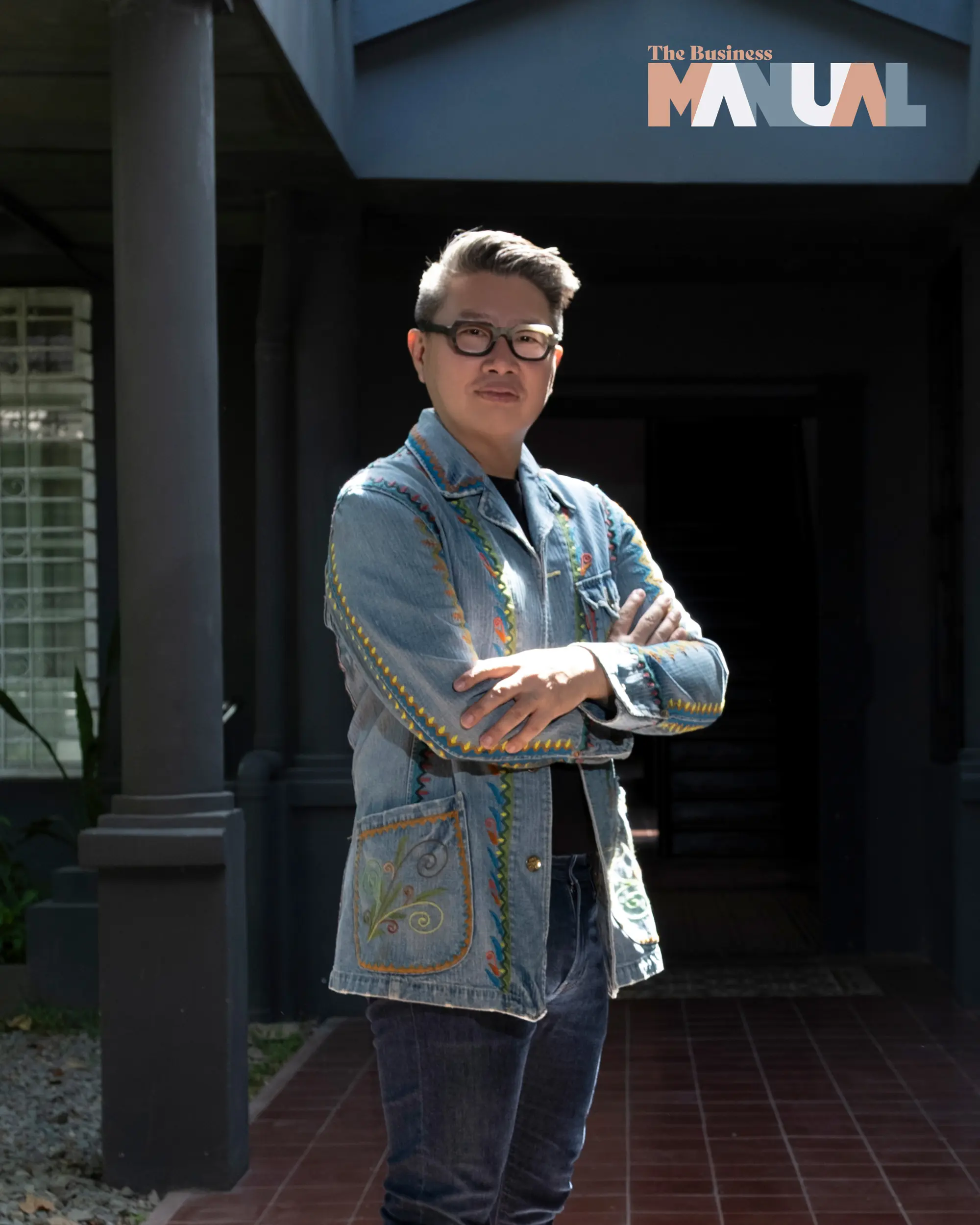
Brand Pillar #2: Leveraging the Filipino
Filipinos are famous for their unparalleled hospitality. The Henry Hotels leverages this strength with an all-Filipino staff, which gives the hotel chain an edge over international rivals.
“Our people all serve from the heart,” Hanky says with pride. “If you look at their smiles, if you look at the smile of a Filipino, it is a genuine smile. It is from the heart. It is authentic.”
Brand Pillar #3: A Celebration of the Philippines
“The last brand pillar that we have is what we call celebrating the Filipino,” Hanky Lee says. “So it’s working with social and local enterprises that are everywhere.”
Every The Henry hotel is an active part of its local community. And the community informs and imbibes each hotel with its vibrant character. As a celebration of the Philippines, it is an expression of joy.
Together, these three brand pillars make each boutique hotel in The Henry Hotels chain a unique experience for every guest, fulfilling their “like no other” promise.
Hanky says “It’s about certainty of intent, right? Because our vision is clear, our three brand pillars are clear, then our movements are with intention. So the brand pillars that I mentioned–sense of place, leveraging the Filipino, and celebrating the Philippines–that’s our lens every time we come upon a new problem.”
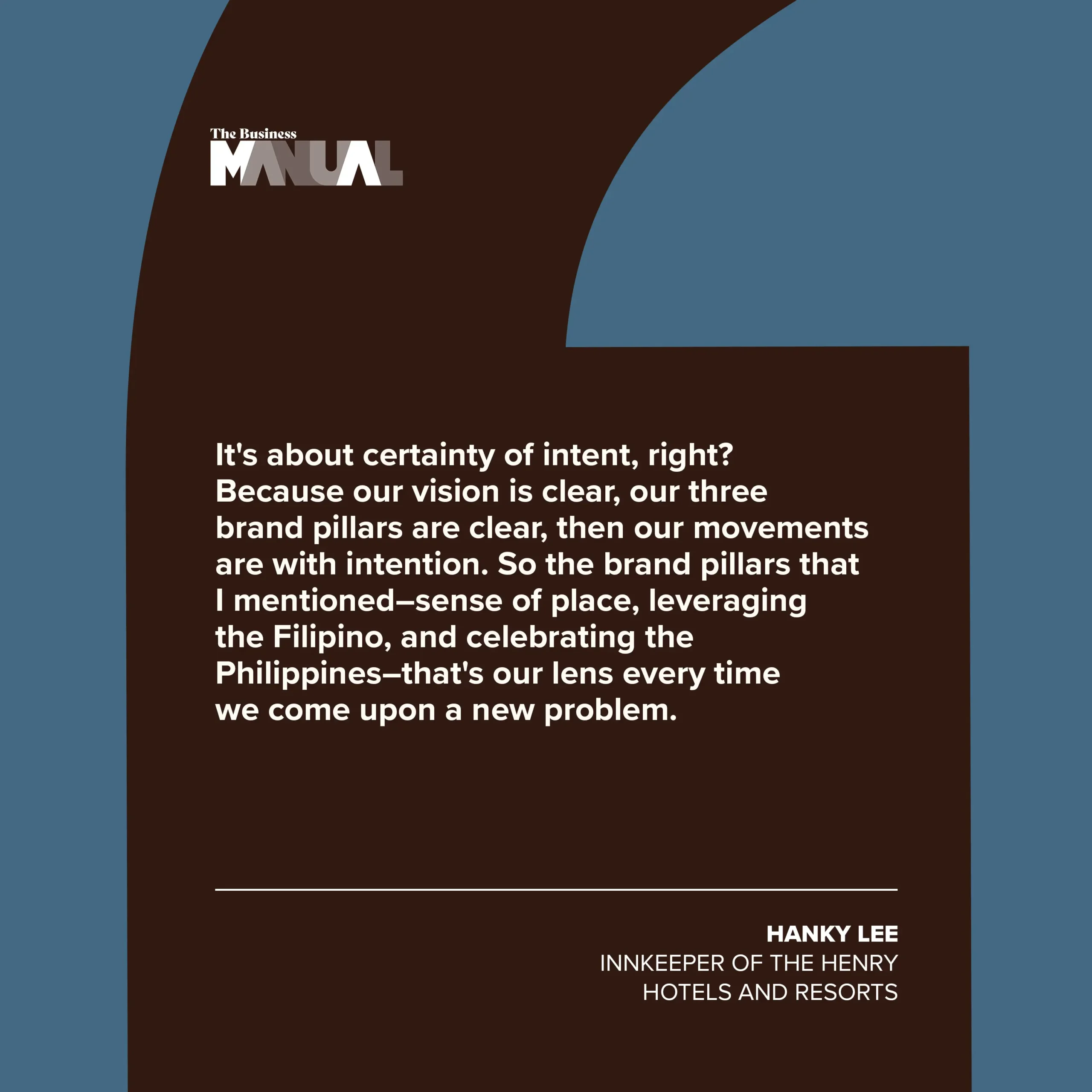
4. Vision Alone Isn’t Enough—You Need the Right Team
Hanky Lee emphasizes that even though a clear vision is important, execution is crucial to your business’ success. As a self-confessed entrepreneur who focuses on vision, Hanky advises that you surround yourself with the right partners.
“In a company, there are two kinds of entrepreneurs,” he says. “One is a visionary and one is called an integrator. If you’re a visionary, what do you think of? You think of tomorrow. You think of how to move forward, where to go.”
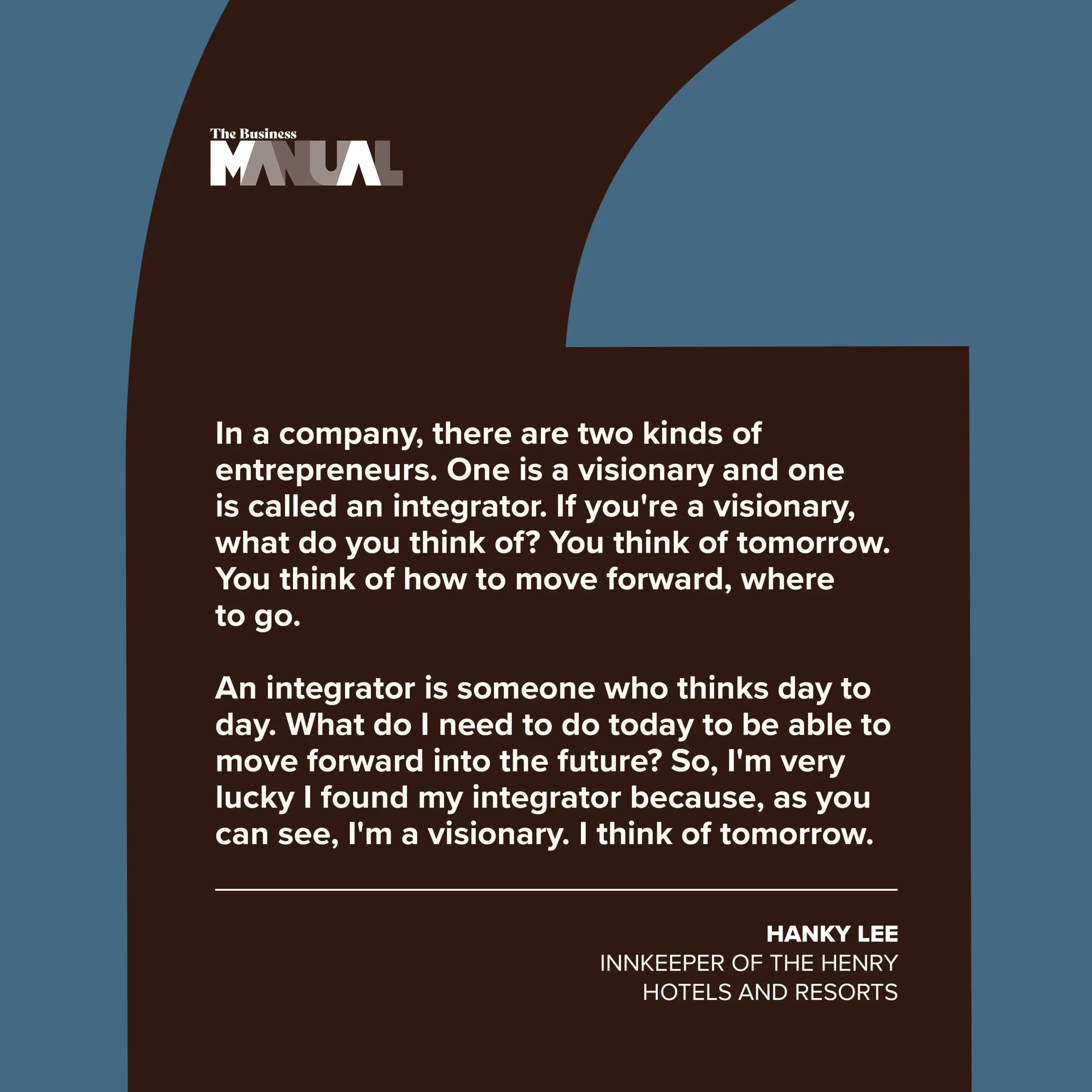
While Hanky could dream big and map the future, he needed someone to execute flawlessly. He found that partner in his COO, August Samala. This partnership accelerated the company’s growth, allowing Henry Hotels to scale to 12 properties across the Philippines.
For founders, it’s crucial to recognize your own strengths—and find complementary partners who bring balance and execution to the table.
5. Adapt Your Business Model to Survive and Thrive
Hanky Lee’s vision was always to “blanket the Philippines with hotels and resorts.” Today, with nine The Henry Hotels and three more–in El Nido, Makati, and Clark–scheduled for completion this year, he is well on his way to covering the Philippines in unique boutique hotels. However, during the pandemic, Hanky faced the biggest challenge to this vision.
“It kind of broke me,” Hanky confesses. “I remember I was sitting down at my desk, March 20th, the day after [lockdown]. That was our strongest year ever. January, February, the strongest two months ever. And then you see zeros. So imagine if you look at that.”
The pandemic could have spelled the end for The Henry Hotels. Instead, it became a catalyst for innovation.
Hanky Lee changed their business. Instead of acquiring properties, renovating them, and managing the hotel, The Henry Hotels would instead partner with property owners and manage the properties as part of their rapidly growing hotel chain.
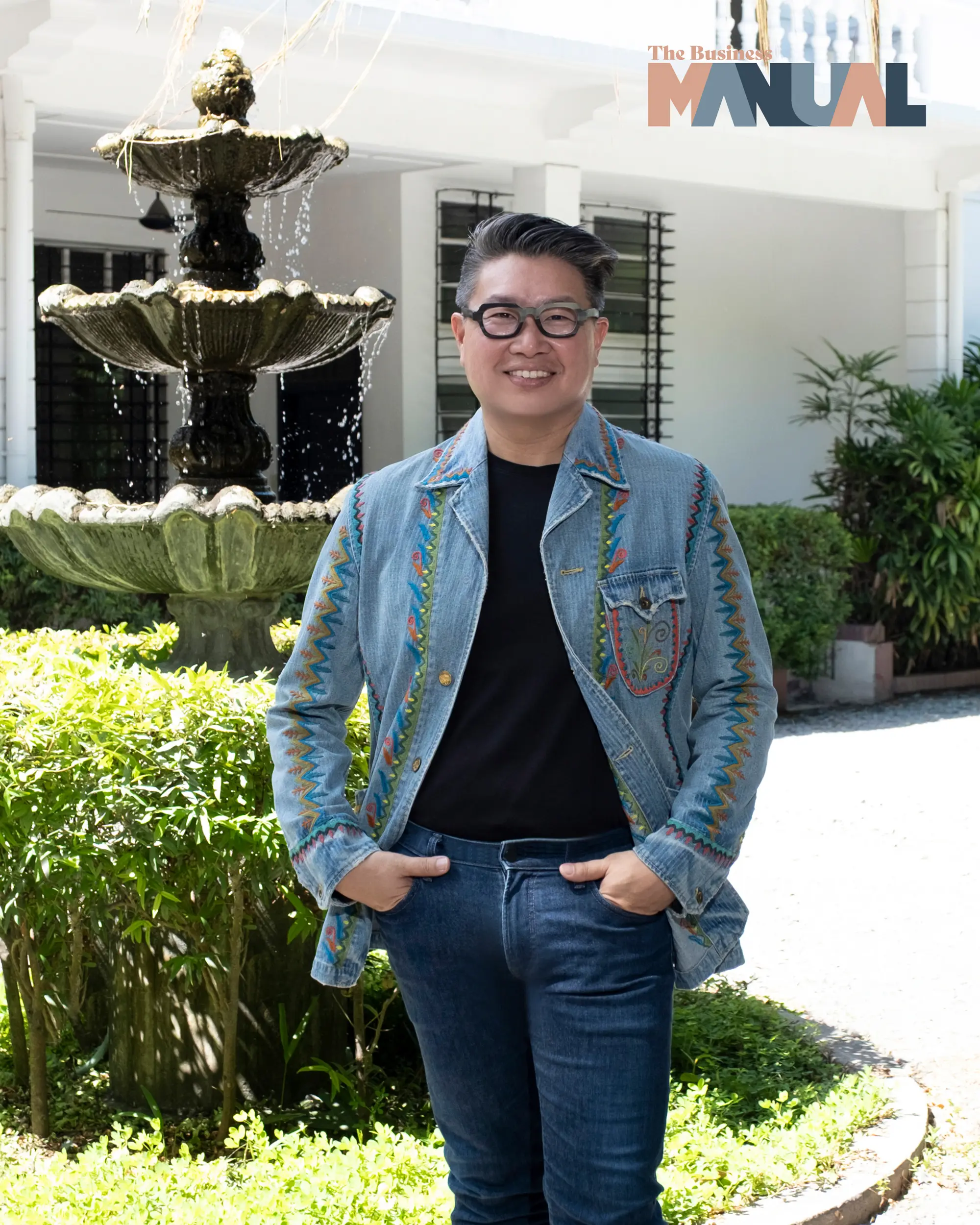
Hanky says, “What happened was, we approached these owners and told them, ‘Okay, our people are all hoteliers. We can help you.’
“And then, [we] maximize the asset. So that’s why we were able, over the past four years, since 2021, to grow from one to 12 [hotels] today.”
Through this simple shift in their business model, The Henry Hotel found a way to better achieve its mission and to grow at scale. And they are able to focus more on what matters.
Speaking about innovation, Hanky says that their work from the brand level to the details of each Henry Hotel has allowed them to compete with the big international hotel chains. He says, “Innovation for us is what we’ve done. I mean, these 12 locations, these 12 properties that we have, they are so unique, so different.
“Because of this innovation, because of this uniqueness, we are able to compete with other big names.”
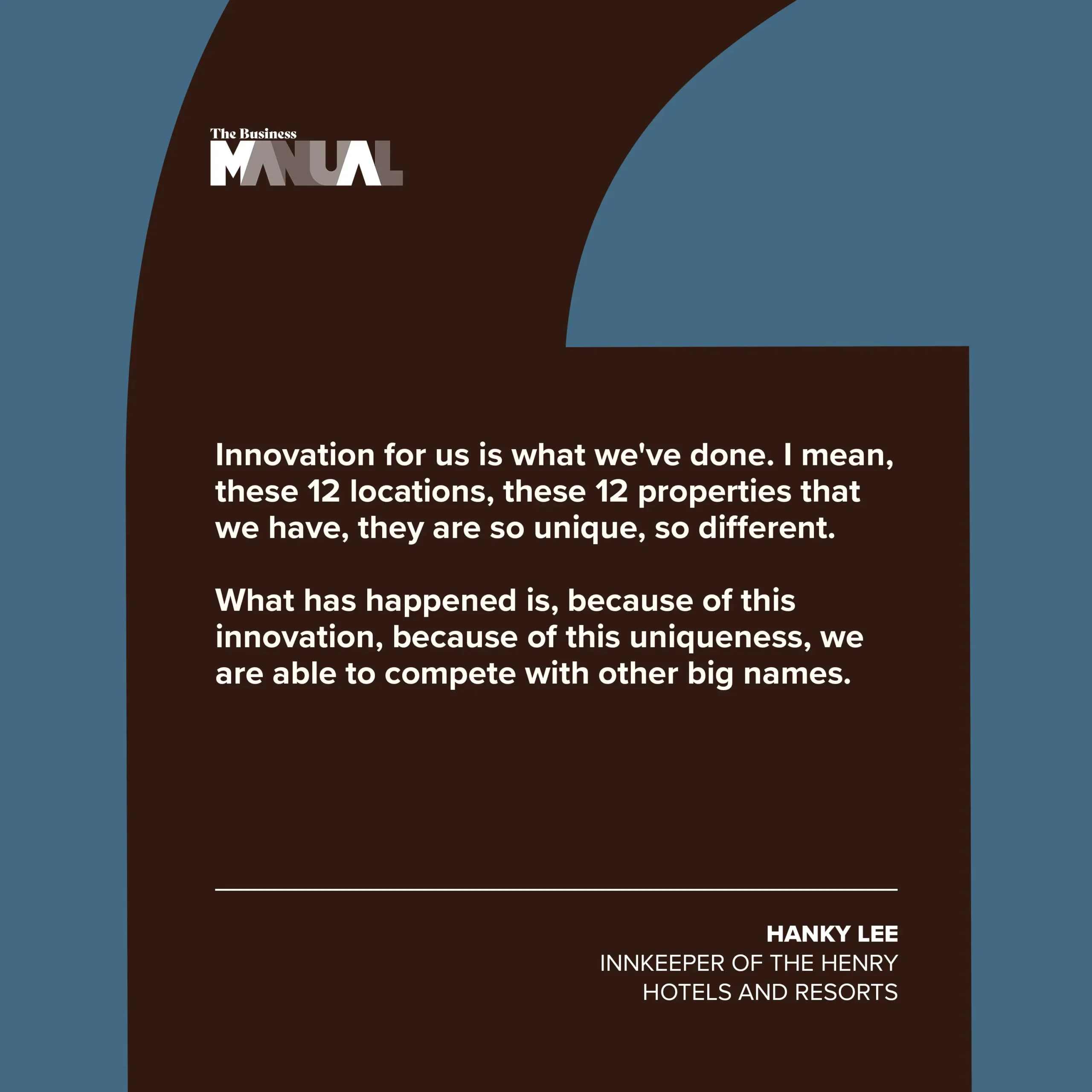
This shift from asset-heavy to asset-light operations not only helped them survive the crisis—it enabled them to scale faster. Entrepreneurs must be willing to challenge their original assumptions, pivot their models, and stay agile when circumstances demand it.
5. Build for Experience
The Henry Hotels is built on its three brand pillars, and together, these values translate into a single purpose—curating an experience.
For Hanky Lee, the hotel business is more than just providing rooms, or even delivering service. He says, “Actually, it’s not about service. For us, it’s about experience. So, I mean, yes, a hotel, at the end of the day, it’s still a bed where you sleep… If you wrap it around what we offer, it becomes an experience. And it’s that experience that people want to come back to us.”

This ethos underscores a powerful business principle: Don’t just sell a product—create an experience. Whether it’s a pizza or a hotel stay, design your offering to engage the heart.
Hanky Lee’s journey proves that successful entrepreneurship is not about copying trends, but about creating businesses with soul. From his experience with Yellow Cab to his mission of “blanketing the Philippines with boutique hotels,” he teaches us that clarity of vision, adaptability, and human-centered thinking are timeless entrepreneurial assets.
Text VINCENT SALES
Photography ED SIMON of KLIQ INC.
Videography JR RAMIREZ of KLIQ INC.
Art Direction ANDREA SANGCO assisted by CATHY PULIDO
Sittings Editors RJ LEDESMA, JILL TAN RADOVAN
Shoot Coordination TONI MENDOZA
Shot on Location THE HENRY HOTEL MANILA





